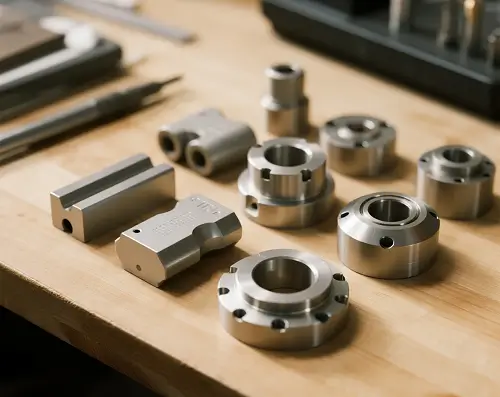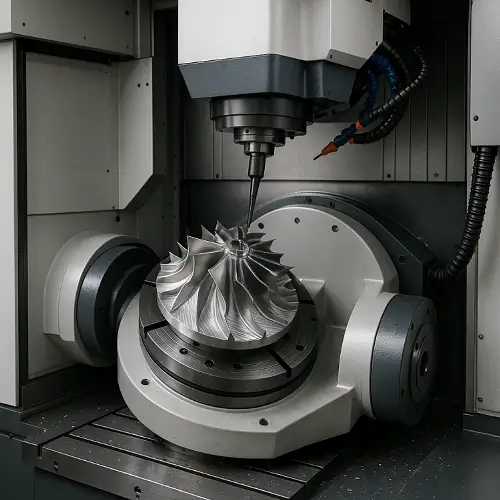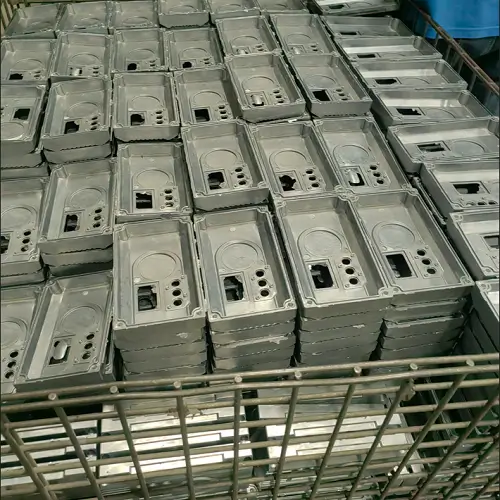For product designers and mechanical engineers, speed and precision are often at odds. When only 5, 20, or maybe 100 machined parts are required—fast and accurate—traditional manufacturing feels slow, expensive, and unfit. That’s where low volume CNC machining quietly outshines the alternatives. It’s not just a fallback between prototyping and mass production; it’s a solution tailored for modern product teams navigating tight schedules, iterative design, and uncertain demand.

Why Low Volume CNC Machining Deserves a Closer Look
CNC machining is often misunderstood as a high-volume production method. While it excels there, it’s equally valuable in low-volume production scenarios—particularly when the stakes involve:
-
Dimensional accuracy
-
Material verification
-
Functional prototyping
-
Small-batch production before tooling investments
Low volume CNC machining plays a critical role in early-stage product development by offering the ability to create parts with final-material properties and precise tolerances without upfront tooling costs or delays.
Elimination of Tooling Costs and Lead Time Reduction
Injection molding, die casting, and stamping involve costly molds and lengthy lead times, often spanning weeks. In contrast, low volume CNC machining removes the need for molds entirely. Parts are produced directly from CAD files, reducing setup time drastically.
This advantage benefits projects where design iterations remain frequent and tooling investment is premature. Lead times for low volume CNC machined parts commonly range from 3 to 5 business days depending on part complexity.
Material Authenticity and Mechanical Performance
Parts created through low volume CNC machining use production-grade materials, including metals such as aluminum, stainless steel, and brass, or engineering plastics like PEEK and Delrin. This ensures mechanical and functional characteristics accurately reflect final product requirements.
Such authenticity is essential for testing fit, strength, and regulatory compliance in industries like aerospace, automotive, medical, and robotics.
Rapid Design Changes and Production Flexibility
Design modifications are inherent to development. With low volume CNC machining, updating the CAD model is sufficient to implement changes. The absence of tooling adjustments allows rapid turnaround between design versions, supporting accelerated development cycles without significant cost or delay.
Cost Efficiency in Small Batch Production
For quantities generally under 500 units, low volume CNC machining frequently represents the most cost-effective manufacturing method. While the per-unit cost exceeds that of mass production, eliminating tooling expenses offsets the difference, particularly during early development or pilot production runs.
Real-World Application: Case Study of Low Volume CNC Machining Success
A robotics startup developing inspection drones required 120 precision-machined aluminum housings for an investor demonstration and field testing. Injection molding was not viable due to tooling cost and time constraints, while additive manufacturing could not meet durability or thermal requirements.
Low volume CNC machining enabled production of the complete batch within 7 business days using 6061-T6 aluminum. The parts achieved exact design specifications and performed reliably under real-world conditions, allowing the startup to secure investment and collect valuable product data before committing to mass production.
The lead engineer noted that rapid access to functional parts without tooling was crucial in meeting tight deadlines and investor expectations.
Verifying Manufacturing Capability: The Importance of Sample Submission
When uncertainties exist regarding a supplier’s capabilities or production quality, submitting a physical sample or prototype prior to full production proves invaluable. This allows verification of machining feasibility, dimensional accuracy, and surface finish according to specification.
Such a step mitigates risk, confirms expectations, and aligns production standards early in the process.
When to Opt for Low Volume CNC Machining
Low volume CNC machining is optimal when:
-
Production-grade prototypes are required for functional testing.
-
Multiple design iterations are expected during development.
-
Avoiding tooling costs and lead time is critical.
-
Small batch production aligns with market or testing demand.
-
Precision and material compliance are mandatory.
Industries benefiting most include aerospace, automotive, medical devices, robotics, and any sector with high-quality standards.
Cost and Lead Time Considerations
Costs depend on material choice, machining complexity, and batch size. While individual part costs are higher than mass production, eliminating tooling and setup costs compensates in low volumes.
Typical lead times range between 3 to 10 business days, with complexity potentially extending schedules. Early engagement with the machining provider improves cost estimates and scheduling accuracy.
FAQs About Low Volume CNC Machining
What defines “low volume” in CNC machining?
Generally, production runs between 1 and 500 parts qualify as low volume, though specific thresholds may vary.
What lead times are typical for low volume CNC machined parts?
Most suppliers deliver within 3 to 10 business days, depending on part complexity.
Which materials can be machined in low volumes?
Common choices include aluminum, stainless steel, brass, and engineering plastics such as PEEK and Delrin.
Can design iterations be accommodated?
Yes. CAD file updates allow quick production of revised parts without tooling changes.
How can manufacturing quality be ensured?
Sending physical samples for supplier verification before full runs confirms quality and machining feasibility.
Conclusion
Low volume CNC machining is a vital process for bridging prototype development and mass production. Its combination of precision, material authenticity, cost-efficiency, and rapid iteration capability supports product teams striving for speed and quality. When tooling costs and lead times become obstacles, low volume CNC machining provides a strategic solution enabling confident decision-making and market responsiveness.
If you require CNC machining for low-volume parts, feel free to request a quote from us. Whether it’s small-batch or large-scale CNC production, we are fully equipped to deliver high-quality parts that meet your exact specifications.


